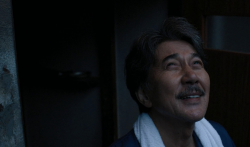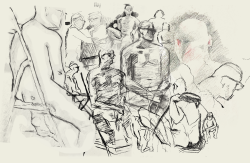Prior to coming to college, almost all of the influences in my life were male. My sole sibling is male. My six closest first cousins are male. 12 of the 15 kids in my elementary school class were male. I went to an all-male high school, with all-male English and history departments. I keep in touch with maybe one or two female friends from before college. The first few chapters of my life were a total sausage fest.
That’s definitely not a good thing, and not just because it made me socially awkward and inexperienced with women. For a large part of my life, I didn’t learn to understand and value a female perspective—not by intention but just as a by-product of the kind of male-centric Catholic education I received.
Fortunately, my three years at Georgetown have gone a long way in undoing the damage. I have found that Georgetown students (for the most part) want to embrace a wide variety of experiences and opinions. I’ve learned a lot about gender equality just by experiencing the value of a co-ed education. But being a member of the Hilltop has led me to a startling realization: my favorite genre of music and some of my favorite bands are kind of sexist.
Punk music, like much of rock music, has always been male dominated. The band members are male, the songs are often about men doing men things, the guys in the mosh pits are male, etc. And even when bands do have female members, the women are often objectified and seen more as token participants than vital members of musical production and performances. Last year at a show in New York, female members of two of my favorite bands, Brianna Collins of Tigers Jaw and Britty Drake of Pity Sex, were sexually assaulted on stage when stage divers ran up and kissed them.
Behavior such as this makes it less likely for women to feel included in the genre. The biggest problem is that it limits the scope of the music and its message. In any genre of music, potential is lost when any sect of musicians and fans are locked out.
In my last Deadbeats column, I argued that hip-hop shouldn’t be reserved for black people because that arbitrarily prevents the genre from maximizing its reach and power. The same must be argued for women in punk music. Punk music’s message is defined by its countercultural roots. Though the message has morphed across sub-genres to reach different understandings of what constitutes “counterculture,” punk music attempts to describe some value in moving away from what’s popular or what’s seen as the norm.
Women must be part of that movement. A music genre can’t claim to be an all-inclusive alternative to popular culture if it doesn’t bring 50 percent of the population into the conversation.
In general, however, most punk bands and fans can’t be blamed directly. In most cases, it’s not an intentional choice to have mostly male fans or to perform with only a male perspective. Rather, that’s mainly a product of the fact that it’s always been easier for men than women to join bands across genres. Then, the men who get involved in music just tend to write about what they, as men, have experienced. Over time, this will get better. As I mentioned before, punk is an all-inclusive mode of expression, and I believe that most bands and fans try to honor that by drawing many people into their shows and fan bases.
But even today, some bands still don’t really understand the importance of inclusivity. One band in particular has really bothered me over the past couple years. Hailing from California, The Story So Far and their frontman Parker Cannon are one pissed off group of guys. Their two full-length albums, Under Soil and Dirt and What You Don’t See are nasty break-up albums through-and-through, the kind that demonize women and blame them for everything that went wrong in a relationship. And I can’t get behind any album with a song like “Daughters,” which is an ad hominem, slut-shaming tirade against a girl for deciding to see other people.
That kind of thing needs to go away. As long as it remains, there will still be people trying to kiss female musicians at shows, treating the artists like nothing more than eye-pleasing outsiders at their own concerts.




